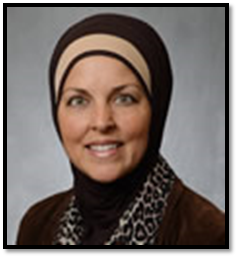
Charlene M. Elder has served as a judge for the Wayne County Third Circuit Court since 2005. She currently sits in the Family Division of the court, handling a variety of domestic relations cases involving divorce, child custody, and personal protection matters. Judge Elder is one of three judges who helped initiate the Domestic Violence Prevention Court, designed to offer a wide range of services to victims of domestic violence who obtain personal protection orders against their perpetrators.
When is your motion call?
Wayne County motion call day is Friday; however, I will hear motions on other days of the week as well. The number of motions is different based on the division one sits in, and if motions are going to be heard throughout the week, I try not to schedule more than 14-15 motions on any given Friday because each motion can come with multiple cross-motions and may require extra time to deal with.
Do you have any particular briefing requirements? What sort of arguments in a brief do you find compelling?
I do require briefs before trial or evidentiary hearings. Briefs are also helpful when motions present issues that are not routine or not so common. Often cases present unique issues warranting a review of the current law and caselaw. Compelling arguments will cite the authority behind the position taken. Briefs that cite (preferably published) cases and that can differentiate and support the current argument are always helpful.
What do you think is the most commonly misinterpreted court rule or rule of evidence?
Relevance. Almost everything is relevant, especially if it took place after the last order.
Any other common mistakes lawyers make in your courtroom?
- Sometimes they are not prepared to support an argument on a unique issue, or even a not-so-unique issue. Surprisingly, lawyers fail to articulate what relief they are asking for. Lawyers need to make their point clear and clearly request the ruling they are looking for. Sometimes, several matters are addressed that have nothing to do with the issue before the court, and lawyers get lost in meaningless side arguments and forget to tell the court what it is they are asking for. I have heard myself say, “And what can I do for you today?”
- Seek concurrence on motions, please!
- Be on time, or be courteous to the court and the other side if you are running behind by letting us all know. Do not book multiple matters in other places on the day of trial.
Who makes up your judicial staff and what roles do they play?
My court clerk makes all of the court entries, takes care of scheduling, and makes sure the docket is always in the best of shape. My current court clerk has been with me for over 10 years, and she basically runs the courtroom with her experience, pleasant demeanor, and outstanding docket management skills.
Among my judicial assistant’s various responsibilities are preparing me for the docket by pulling all of the cases set to be heard and outlining the issues. If she recognizes a complicated matter, she researches those issues. She double-checks service, makes sure briefs are submitted timely, and helps when I am backed up. She can handle case management conferences and help pro per litigants get their paperwork in order. Staff in this position typically stay for a few years and then move on to bigger and better opportunities.
My court officer makes sure there is order in the courtroom. Many are intimidated by my current court officer’s size, so for the most part people are on their best behavior in his presence. He has been with me since I took the bench and is among the most trustworthy individuals I know.
What types of pretrial conferences do you hold and what happens at them?
We hold case management conferences at the onset of our cases. These conferences make the court aware of relevant issues so that the court can order needed services (such as FAME, FOC, mediation, supervised parenting time, and more). The court will also schedule settlement or status conference dates so that the attorneys and litigants can make the court aware of the case’s progress.
Do you have any advice for new lawyers?
Be prepared. Try to be a problem solver, as opposed to a problem maker. Know the law. Know what your relief requested is. And don’t forget to address the best interests factors in a custody hearing.
What is an example of a time a lawyer impressed you?
One time, a reputable family law mediator had a custody trial in front of me. He wasted no time on meaningless facts, and he succinctly addressed the 12 best interests factors. He went through them with his client, and then with the other side. He elaborated only on necessary facts that would assist this court in making a custody determination. He was clear, concise, and to the point—and detailed what specific relief his client was seeking.
I don’t see that a lot. In fact I have held custody hearings in which I have to keep reminding the attorneys to address the best interests factors.
What is something interesting you do off the bench?
I love to travel and hang out with my adult children (when they can fit me in). I like to cook, and I love to have extended family over on a regular basis.
Is there anything else you would like Michigan lawyers to know?
Family law is already contentious enough. Advocate for your client, but try not to disparage the attorney on the other side—it’s unprofessional.